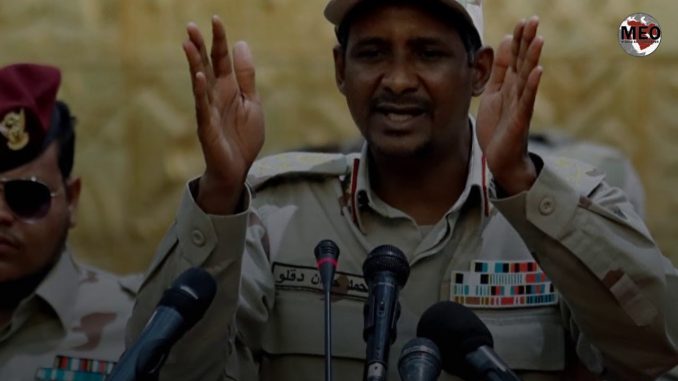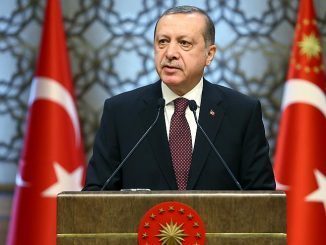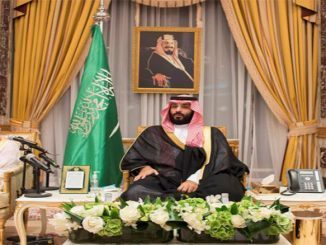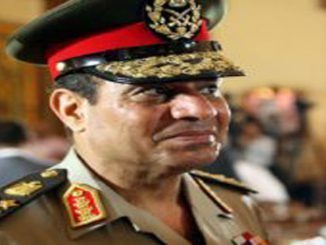
Members of the NCP and Islamic Movement are being swept up in an arrest campaign, despite once being part of the same regime as the generals now in charge
Sudanese Islamists are under intense pressure, as the ruling Transitional Military Council (TMC) wages an ongoing arrest campaign against them following the Wednesday announcement an alleged coup was foiled.
Sources have told Middle East Eye that, under instructions from the TMC, forces have been hunting down Islamists under the accusation that they have been destabilising the country and attempting to topple the military leaders that took power following the removal of President Omar al-Bashir.
Sources within the army and analysts believe that the confrontation between the Islamists and the Rapid Support Forces (RSF) militia, headed by TMC deputy head Mohamed Hamdan Daglo, commonly known as Hemeti, is expected to escalate in the coming period.
The TMC is currently working on an agreement with Sudanese protest and opposition groups that would see its influence entrenched as the country moves out of the Bashir era.
Scores arrested
A senior officer in the Sudanese army told MEE that at least 140 senior and junior officers have been arrested in the campaign so far. Those seized come from various units, in and outside the capital Khartoum.
The source, who spoke on condition of anonymity over security concerns, said the arrest campaign is the largest ever within the national army.
“I expect more will be arrested,” the source said.
Bashir’s ruling National Congress Party (NCP) was dominated by Islamists, and on Wednesday the Sudanese military said members of the NCP and Islamic Movement were involved in the alleged coup plot.
The plot aimed “to return the former National Congress regime to power” and scupper the ongoing negotiations the TMC is holding with the opposition, the military said in a statement.
“At the top of the participants is General Hashim Abdel Mottalib, the head of joint chiefs of staff, and a number of officers from the National Intelligence and Security Service [NISS],” it said.
According to the army officer, Hemeti has ordered Sudan’s security organs to be restructured – particularly the operations unit of the NISS.
“The entire operations unit, which contains more than 10,000 soldiers working under the command of NISS, has been given only two options: whether to restructure and join the RSF, or be demobilized and disarmed,” the source said.
The source added that the army, backed by the RSF, has arrested dozens of Islamists and leaders of the old regime, including former Vice President Bakri Hassan Salih and Secretary-General of the Sudanese Islamic Movement al-Zubair Mohamed al-Hassan, among others.
“So far at least 40 Islamist figures have been arrested, in addition to the 23 people already in detention, including President Omar al-Bashir,” he said.
MEE has not been able to independently verify whether a coup attempt was indeed thwarted, or when it was supposed to have taken place.
Last month the military made a similar claim it had averted a putsch. Security sources told MEE at the time that the army exaggerated its claim to strengthen its position in power-sharing talks with the civilian opposition.
Criminals or victims?
For its part, the Sudanese Islamic Movement has dismissed the allegation, stressing that its members and supporters aren’t involved in any such activities.
“The Sudanese Islamic Movement is very keen on the stability and prosperity of Sudan, so it has kept monitoring the situation and the current developments in Sudan closely. This is why it has left everything to the TMC to manage. But it has noticed that it has been blamed for anything wrong that has happened in the country over the last period,” it said in a statement.
“Our leaders weren’t involved in any coup attempt and have nothing to do with military coups, so we call on the TMC to bring forward proof and evidence of these accusations.”
However, the Forces for Freedom and Change (FFC) opposition alliance said it welcomed the TMC’s efforts in controlling and saving the country in the face of an attempted counter-revolution.
Satia al-Haj, a leading FFC member, told MEE that the counter-revolution, represented by the Islamic Movement and NCP, continuously attempts to derail the revolution and obstruct the establishment of civilian rule and democracy.
“We can’t confirm if they really committed this coup attempt or not. But we can definitely say that they are attempting by all means to sabotage the revolution, and the national army is now responsible for stopping that and protecting the country from the destabilisation,” he said.
However, the leader of Bashir’s defence team, Mohamed al-Hassan al-Amin, noted that anyone who has been arrested is supposed to be presented in court or released.
Amin, who was a prominent NCP leader, said the TMC should follow the proper legal procedures with all citizens.
“As long as we are talking about democratic transformation and reformation in the coming period, we are supposed to follow the right legal steps when we accuse anyone of committing anything. So we urge the TMC to bring anyone that is suspected of any crime to court, not put him in jail,” he argued.
Collision course
Sudanese military expert Abdul Aziz Khalid believes that allegations of military coups will continue as competition over influence in the army grows.
He said the arrests were “preventative measures” by the TMC in an attempt to stop any potential moves to remove the council from power.
“The two powers of the TMC and the pro-Islamists are apparently working against each other within the regular forces, including the army, security and even the police, so it’s very probable that they may go for further confrontation,” he said.
Political analyst Salah al-Doma said that Hemeti’s wide restructuring and the arrests showed the factions of the old regime in and out of the TMC had failed to coexist following Bashir’s removal.
He said that despite them once belonging to the same regime, previous regional armed conflicts in the country’s west and south and a conflict of interests had put them on a collision course.
“The regional effect as well as the political and economic interests, in addition to the pressure of escalation in the streets, all accelerated the potential of clashes between the old guard Islamists and the commanders of the TMC backed by the RSF,” the professor at Omdurman Islamic University said.



